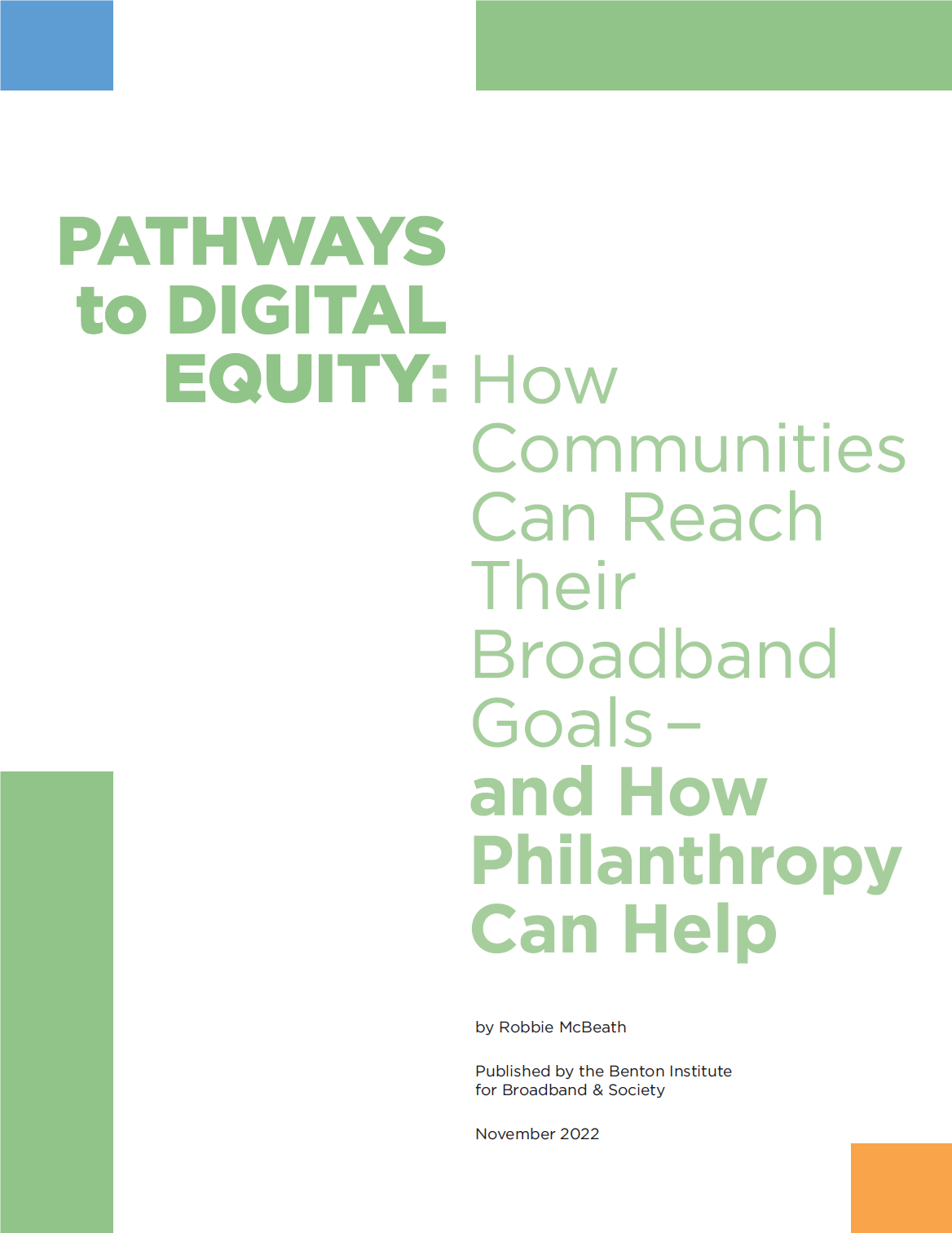Robbie McBeath
For community leaders striving for digital equity, this guidebook will help communities evaluate and meet specific connectivity needs.

Our Challenge to Finally Close the Digital Divide
This is a historic time for broadband investment. The COVID-19 pandemic has exposed the high costs of being offline. In response, Congress, over the past year, passed two laws—the Consolidated Appropriations Act and the American Rescue Plan—with an unprecedented amount of funding devoted to promoting digital equity. Communities should be engaged now to help craft long-term connectivity goals and ensure that diverse voices are part of the discussion—and that’s our job.
Illinois Connected Communities Round 1: Leveraging the Power of Local Communities
The first round of the Illinois Connected Communities program is beginning to wind down. The program is an education and capacity-building project that pairs critical philanthropic resources with state funding — with a goal of serving 30 under-resourced Illinois communities over three years. Selected communities complete a community-driven, broadband strategic plan that articulates the community’s vision and identifies an action plan for progress toward improved broadband access, adoption, and/or utilization.
Reactions to House Passage of the American Rescue Plan Act, $7.1 Billion Emergency Connectivity Fund
On March 10, the US House of Representatives passed the American Rescue Plan, a coronavirus relief package that includes more than $7 billion in funding for the E-Rate program to support emergency broadband connectivity and devices for schools and libraries and their students, staff, and patrons.
Reactions to FCC Adopting Emergency Broadband Benefit Order
On Feb 25, 2021, the Federal Communications Commission adopted a Report and Order establishing the Emergency Broadband Benefit Program, a $3.2 billion federal initiative to provide low-income households discounts on their internet service bills.
Reactions to Court Ruling on California Net Neutrality Law
On Feb 23, Judge John Mendez of US District Court for the Eastern District of California rejected a telecommunications-industry challenge to California’s two-year-old net neutrality law, clearing the way for the state to begin enforcing the consumer protections. "I have heard that argument and I don't find it persuasive," Judge Mendez said. "It's going to fall on deaf ears. Everyone has been on their best behavior since 2018, waiting for whatever happened in the DC Circuit [court case over the FCC's repeal of net neutrality].
Reactions to Commissioner Rosenworcel Named Acting Chair of FCC
President Joe Biden has named Commissioner Jessica Rosenworcel as acting chair of the Federal Communications Commission.

Connectivity in the Time of COVID
During the COVID-19 pandemic, the necessity of broadband became incontrovertible. Attending school, working from home, visiting a doctor, and accessing government services all relied on reliable broadband connections. For many, bridging the digital divide emerged as an even-more-urgent priority. We’ve tracked the stories that best explain the complexities of the digital divide and the crucial policy responses. Here’s our list.
Reactions to Broadband Provisions Included in the COVID-19 Relief Bill
What Is in the $900 Billion Covid-19 Aid Bill Here's how DC responded.
House Speaker Nancy Pelosi (D-CA) and Senate Democratic Leader Chuck Schumer (D-NY): "The agreement invests $7 billion to increase access to broadband, including a new Emergency Broadband Benefit to help millions of students, families and unemployed workers afford the broadband they need during the pandemic."
Reactions to Senate Confirming Nathan Simington to FCC
On Dec 8, the Senate confirmed Nathan Simington as a new Republican member of the Federal Communications Commission in a 49-46 vote.
Senate Commerce Committee Chairman Roger Wicker (R-MS): “Nathan Simington’s confirmation will help ensure a balanced FCC and continued light-touch regulatory approach that has kept the internet free and open for all Americans."

